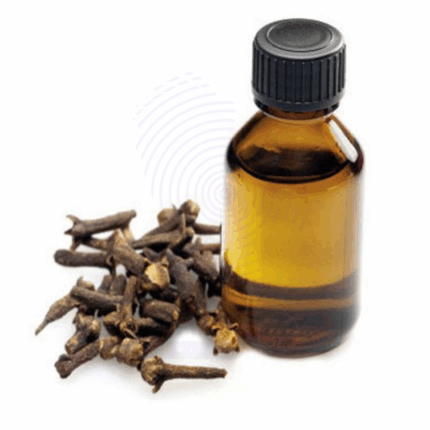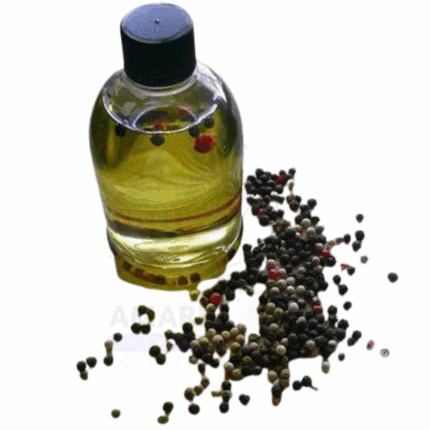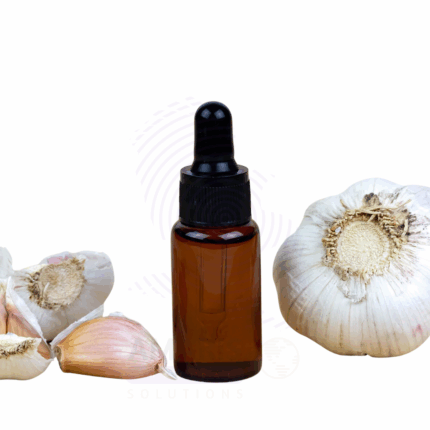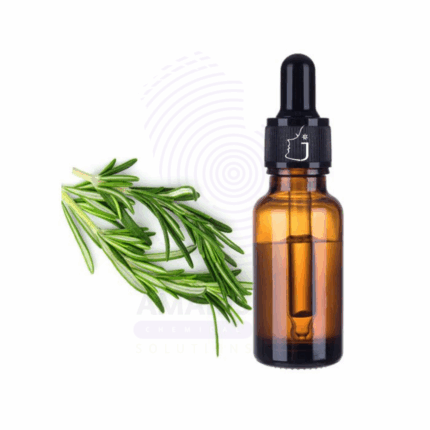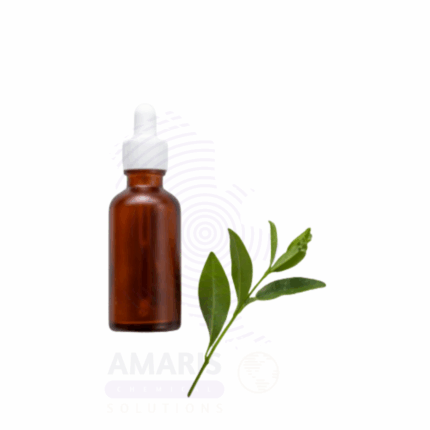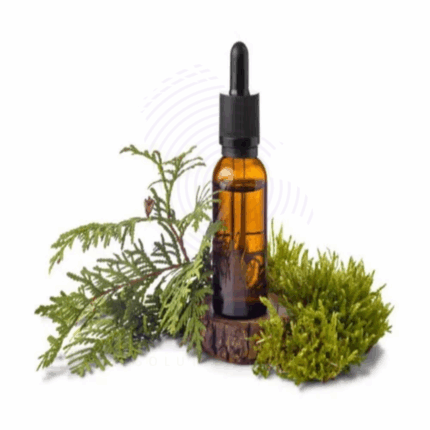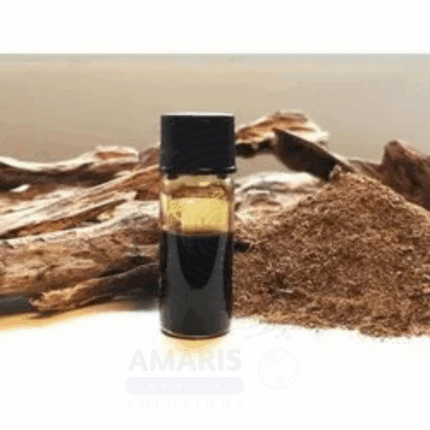
Clove Bud Oil
Clove Bud Oil is a potent essential oil obtained through steam distillation of the flower buds of the Syzygium aromaticum (formerly Eugenia caryophyllata) tree. Renowned for its strong, spicy, and warm aroma, it is rich in eugenol — a powerful natural compound with significant antiseptic, analgesic, and antimicrobial properties.
Used historically in dental care, traditional medicine, and perfumery, Clove Bud Oil is now widely applied in cosmetics, oral care, food flavoring, wellness, and natural cleaning products. It is also valued in aromatherapy for its grounding and energizing effects.
Cubeb Oil
Cubeb Oil is an essential oil steam-distilled from the dried berries of Piper cubeba, a plant native to Java and parts of Southeast Asia. With a warm, spicy, woody, and slightly camphoraceous aroma, Cubeb Oil is rich in sesquiterpenes and monoterpenes such as sabinene, cubebene, and caryophyllene. It has traditionally been used in herbal medicine for respiratory and urinary support and in perfumery for its distinctive spicy-woody scent.
In modern formulations, Cubeb Oil is valued for its antimicrobial, anti-inflammatory, and stimulating properties. It is commonly used in natural perfumery, masculine fragrances, therapeutic massage blends, and respiratory wellness products.
Garlic Oil
Garlic Oil is a potent essential oil extracted from the bulbs of the Allium sativum plant, primarily through steam distillation or solvent extraction. Known for its strong, pungent aroma and rich sulfur-containing compounds such as allicin, diallyl disulfide, and ajoene, Garlic Oil is widely recognized for its antimicrobial, antifungal, antiviral, and antioxidant properties. Traditionally used in herbal medicine, it has applications in pharmaceuticals, natural personal care products, food flavoring, and agricultural pest management. Its therapeutic properties also make it a valuable ingredient in formulations aimed at cardiovascular health and immune system support.
Mastic Oil
Mastic Oil is a precious essential oil derived from the resin of the Pistacia lentiscus tree, predominantly found on the Greek island of Chios. Extracted through steam distillation, this oil possesses a distinctive, fresh, slightly piney and balsamic aroma with subtle woody and spicy undertones. Rich in bioactive compounds such as alpha-pinene, beta-pinene, and myrcene, Mastic Oil is valued for its powerful antimicrobial, anti-inflammatory, and antioxidant properties. Traditionally used in Mediterranean folk medicine for digestive health, oral care, and skin healing, it has gained popularity in modern aromatherapy and personal care for its soothing and cleansing effects. Mastic Oil is commonly incorporated in oral hygiene products, skincare formulations, and wellness blends, making it a versatile and revered natural ingredient.
Rosemary Oil
Rosemary Oil is an essential oil extracted through steam distillation from the leaves and flowering tops of the Rosmarinus officinalis plant. It possesses a fresh, herbaceous, and slightly woody aroma. Rich in cineole, camphor, and α-pinene, Rosemary Oil is widely valued for its stimulating, antioxidant, and antimicrobial properties. It is extensively used in aromatherapy, cosmetics, pharmaceuticals, and natural personal care products. Rosemary Oil promotes scalp health, enhances hair growth, supports respiratory function, and is used in massage blends to invigorate the body and mind.
Tea Tree Oil
Tea Tree Oil is a potent essential oil steam-distilled from the leaves of Melaleuca alternifolia, a native Australian plant known for its broad antimicrobial spectrum. It features a fresh, medicinal, camphoraceous aroma with herbal and slightly spicy undertones. Rich in terpinen-4-ol, gamma-terpinene, and alpha-terpinene, Tea Tree Oil is celebrated for its antibacterial, antifungal, antiviral, and anti-inflammatory properties. It has a long history of use in traditional and modern natural medicine, skincare, and hygiene products worldwide.
Thuja wood Oil
Thuja Wood Oil is an essential oil extracted through steam distillation of the wood and twigs of the Thuja occidentalis tree, commonly known as Arborvitae or White Cedar. This oil is characterized by its fresh, woody, and slightly camphoraceous aroma with subtle earthy undertones. Rich in thujone, borneol, and fenchone, Thuja Wood Oil exhibits notable antimicrobial, antifungal, and insect-repellent properties. Traditionally used in herbal medicine and spiritual practices, it supports skin health, respiratory comfort, and natural insect deterrence. Its distinctive scent and versatile therapeutic benefits make it a valued ingredient in cosmetics, natural remedies, cleaning products, and aromatherapy blends.
Thyme Oil
Thyme Oil is a potent essential oil obtained by steam distillation from the leaves and flowering tops of the Thymus vulgaris plant, native to the Mediterranean region. Known for its warm, herbaceous, and slightly spicy aroma, Thyme Oil contains key bioactive compounds such as thymol, carvacrol, and linalool. These constituents contribute to its powerful antimicrobial, antiseptic, anti-inflammatory, and antioxidant properties. Traditionally used in herbal medicine for respiratory ailments, digestive support, and wound healing, Thyme Oil is now widely applied in aromatherapy, cosmetics, natural health products, and cleaning formulations. Its effectiveness and aromatic complexity make it an essential ingredient across diverse industries.
Turmeric Oil
Turmeric Oil is an essential oil extracted from the rhizomes of the turmeric plant (Curcuma longa) through steam distillation. Known for its warm, spicy, and earthy aroma, turmeric oil is highly valued for its potent anti-inflammatory, antioxidant, and antimicrobial properties. It has a rich golden-yellow color and is widely used in cosmetic formulations, traditional medicine, aromatherapy, and natural personal care products. The oil contains bioactive compounds such as turmerone, which contribute to its therapeutic and preservative qualities. Turmeric oil is also used in flavoring and fragrance applications, as well as in natural cleaning products for its antimicrobial benefits.
Worm Wood Oil
Worm Wood Oil is an essential oil derived from the leaves and flowering tops of the Artemisia absinthium plant, native to Europe, Asia, and North Africa. Obtained through steam distillation, Wormwood Oil is characterized by its sharp, herbaceous, bitter, and slightly woody aroma. It contains bioactive compounds such as thujone, camphor, and cineole, which contribute to its potent antimicrobial, insecticidal, and digestive-stimulating properties. Traditionally used in herbal medicine and digestive tonics, Wormwood Oil finds applications in aromatherapy, natural pest control, perfumery, and pharmaceuticals.


 Preservatives(food)
Preservatives(food) Flavor Enhancers
Flavor Enhancers Acidulants
Acidulants Sweeteners
Sweeteners Antioxidants
Antioxidants Colorants(food)
Colorants(food) Nutraceutical Ingredients (food)
Nutraceutical Ingredients (food) Nutrient Supplements
Nutrient Supplements Emulsifiers
Emulsifiers
 Collectors
Collectors Dust Suppressants
Dust Suppressants Explosives and Blasting Agents
Explosives and Blasting Agents Flocculants and Coagulants
Flocculants and Coagulants Frothers
Frothers Leaching Agents
Leaching Agents pH Modifiers
pH Modifiers Precious Metal Extraction Agents
Precious Metal Extraction Agents
 Antioxidants(plastic)
Antioxidants(plastic) Colorants (Pigments, Dyes)
Colorants (Pigments, Dyes) Fillers and Reinforcements
Fillers and Reinforcements Flame Retardants
Flame Retardants Monomers
Monomers Plasticizers
Plasticizers Polymerization Initiators
Polymerization Initiators Stabilizers (UV, Heat)
Stabilizers (UV, Heat)
 Antifoaming Agents
Antifoaming Agents Chelating Agents
Chelating Agents Coagulants and Flocculants
Coagulants and Flocculants Corrosion Inhibitors
Corrosion Inhibitors Disinfectants and Biocides
Disinfectants and Biocides Oxidizing Agents
Oxidizing Agents pH Adjusters
pH Adjusters Scale Inhibitors( water)
Scale Inhibitors( water)
 Antioxidants(cosmetic)
Antioxidants(cosmetic) Emollients
Emollients Fragrances and Essential Oils
Fragrances and Essential Oils Humectants
Humectants Preservatives
Preservatives Surfactants(cosmetic)
Surfactants(cosmetic) Thickeners
Thickeners UV Filters
UV Filters
 Fertilizers
Fertilizers Soil Conditioners
Soil Conditioners Plant Growth Regulators
Plant Growth Regulators Animal Feed Additives
Animal Feed Additives Biostimulants
Biostimulants Pesticides (Herbicides, Insecticides, Fungicides)
Pesticides (Herbicides, Insecticides, Fungicides)
 Active Pharmaceutical Ingredients (APIs)
Active Pharmaceutical Ingredients (APIs) Excipients
Excipients Solvents(pharmaceutical)
Solvents(pharmaceutical) Antibiotics
Antibiotics Antiseptics and Disinfectants
Antiseptics and Disinfectants Vaccine Adjuvants
Vaccine Adjuvants Nutraceutical Ingredients (pharmaceutical)
Nutraceutical Ingredients (pharmaceutical) Analgesics & Antipyretics
Analgesics & Antipyretics
 Analytical Reagents
Analytical Reagents Solvents(lab)
Solvents(lab) Chromatography Chemicals
Chromatography Chemicals Spectroscopy Reagents
Spectroscopy Reagents microbiology-and-cell-culture-reagents
microbiology-and-cell-culture-reagents Molecular Biology Reagents
Molecular Biology Reagents Biochemical Reagents
Biochemical Reagents Inorganic and Organic Standards
Inorganic and Organic Standards Laboratory Safety Chemicals
Laboratory Safety Chemicals Specialty Laboratory Chemicals(Special Laboratory Equipment)
Specialty Laboratory Chemicals(Special Laboratory Equipment)
 Demulsifiers
Demulsifiers Hydraulic Fracturing Fluids
Hydraulic Fracturing Fluids Scale Inhibitors(oil)
Scale Inhibitors(oil) Surfactants(oil)
Surfactants(oil) Drilling Fluids
Drilling Fluids
 Dyes and Pigments
Dyes and Pigments Bleaching Agents
Bleaching Agents Softening Agents
Softening Agents Finishing Agents
Finishing Agents Antistatic Agents
Antistatic Agents
 Admixtures
Admixtures Waterproofing Agents
Waterproofing Agents Sealants and Adhesives
Sealants and Adhesives Curing Compounds
Curing Compounds Concrete Repair Chemicals
Concrete Repair Chemicals Anti-Corrosion Coatings
Anti-Corrosion Coatings
 Surfactants(cleaning)
Surfactants(cleaning) Builders
Builders Enzymes
Enzymes Solvents (Cleaning)
Solvents (Cleaning) Fragrances
Fragrances
 Electronic Chemicals
Electronic Chemicals Catalysts
Catalysts Lubricants
Lubricants Photographic Chemicals
Photographic Chemicals Refrigerants
Refrigerants Automotive chemicals
Automotive chemicals Pyrotechnic Chemicals
Pyrotechnic Chemicals
 Biodegradable Surfactants
Biodegradable Surfactants Bio-based Solvents
Bio-based Solvents Renewable Polymers
Renewable Polymers Carbon Capture Chemicals
Carbon Capture Chemicals Wastewater Treatment Chemicals
Wastewater Treatment Chemicals
 Pigments
Pigments Solvents(paint)
Solvents(paint) Specialty Coatings
Specialty Coatings Binders/Resins
Binders/Resins Additives
Additives Driers
Driers Anti-Corrosion Agents
Anti-Corrosion Agents Functional Coatings
Functional Coatings Application-Specific Coatings
Application-Specific Coatings
 Leavening Agents
Leavening Agents Dough Conditioners
Dough Conditioners Flour Treatments
Flour Treatments Fat Replacers
Fat Replacers Decoratives
Decoratives Preservatives(baking)
Preservatives(baking)
 Plasticizers & Softeners
Plasticizers & Softeners Reinforcing Agents
Reinforcing Agents Adhesion Promoters
Adhesion Promoters Vulcanizing Agents
Vulcanizing Agents Antidegradants
Antidegradants Blowing Agents
Blowing Agents Fillers & Extenders
Fillers & Extenders Accelerators & Retarders
Accelerators & Retarders

















